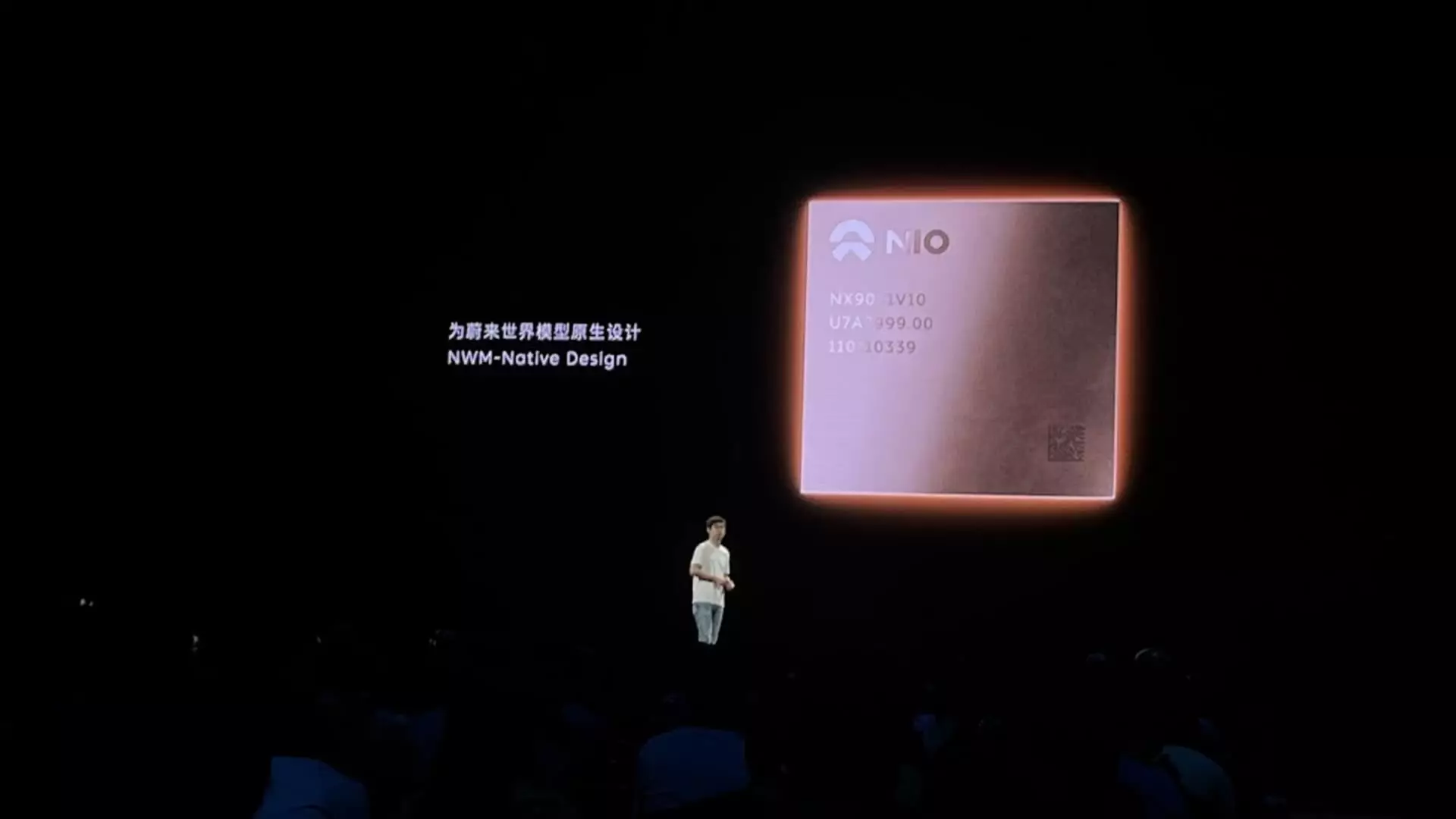Chinese electric car companies are engaged in a fierce price war, but they are now moving their battleground to another front: chip-powered tech features. Instead of relying on Nvidia chips as many have done in the past, companies like Nio and Xpeng are announcing their own in-house designed auto chips for production. This move comes as Chinese electric car makers aim to differentiate their products from competitors who use similar silicon to power their infotainment and intelligent driving systems. With the success of Tesla in developing self-driving technology and designing its own chips, Chinese automakers are now following suit to enhance customization and reduce supply chain risks.
Nvidia has been a key player in providing automotive chips to major players in the electric car industry, with significant revenue generated from this sector. However, with the emergence of in-house chip development by Chinese companies, the landscape is shifting. While Nvidia continues to see growth in its automotive segment, the competition from internally designed chips is expected to bring about changes in the market dynamics. Chinese automakers are likely to test new technologies in small batches initially in the high-end market, impacting the adoption and utilization of Nvidia chips.
Nio recently announced the completion of its automotive-grade chip, utilizing advanced 5 nanometer production technology, setting a new standard in the Chinese automotive industry. The use of this cutting-edge technology is a breakthrough in intelligent driving chip research and development, positioning Nio as a leader in chip innovation. Similarly, Xpeng unveiled its Turing chip, known for its exceptional driver-assist technology. While Xpeng plans to partner primarily with Nvidia for chips, the company’s in-house development showcases its commitment to technological advancement in the electric car sector.
Leading figures in China’s electric car industry are emphasizing the importance of chips in driving technological innovation in vehicles. As the focus shifts toward smart connected vehicles, semiconductors are becoming the backbone of the industry’s development. With the increasing demand for driver-assist technology and artificial intelligence integration, Chinese automakers are strategically investing in in-house chip design to stay competitive in the global market. As companies like BYD and Horizon Robotics adopt advanced chip technology, the industry is witnessing a shift towards cutting-edge solutions for smart connectivity in electric vehicles.
Government incentives, ranging from subsidies to infrastructure support, have significantly contributed to the rapid growth of electric cars in China, the world’s largest auto market. The penetration of new energy vehicles has surpassed 50% of new passenger cars sold in China, reflecting the strong market demand for electric vehicles. As companies continue to innovate and set new standards for tech in cars, the focus on digital key technology and smartphone connectivity is reshaping the industry. Collaborations between Chinese and international companies, such as Nio, BYD, and Huawei, are driving advancements in digital key tech standards, setting the stage for a seamless and secure integration of technology in electric vehicles.
The rise of in-house chip development in Chinese electric cars marks a significant shift in the industry’s technological advancement and competitiveness. By investing in customized chip solutions, Chinese automakers are not only enhancing their product offerings but also reducing reliance on external suppliers. As the global electric car market continues to evolve, the strategic focus on in-house chip design is poised to revolutionize the industry and drive innovation in smart connectivity and autonomous driving technology.

